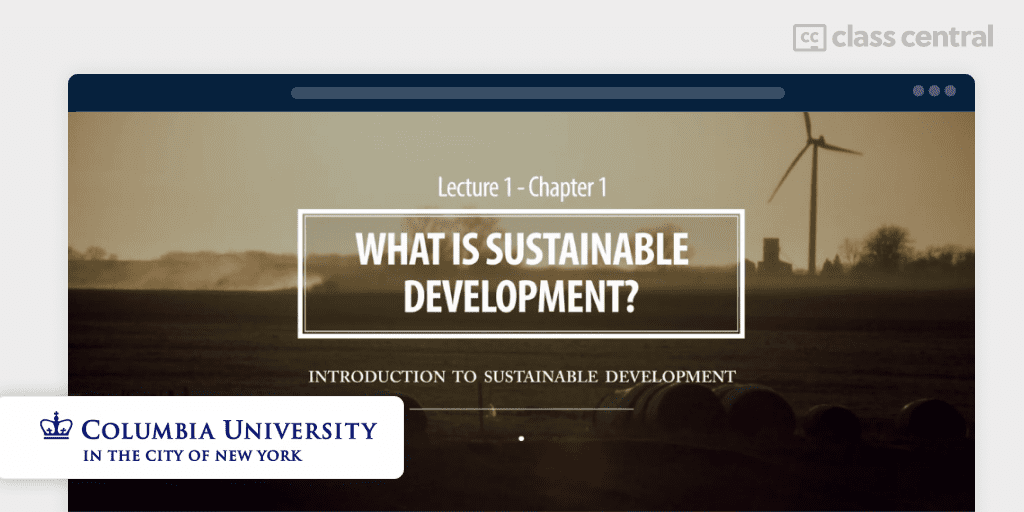Course Review: The Age of Sustainable Development
An interdisciplinary and comprehensive course to keep our heads up in striving for change despite the reasons to be disappointed with the current state of affairs

I have never expected to describe a completed online course, let alone an audit-only one, as “pivotal,” but here we are. Is it really possible to make a digestible overview of a complex, yet indispensable, perspective that is Sustainable Development, and to do so without trimming excessive content? The Age of Sustainable Development course by Columbia University, helmed by Professor Jeffrey Sachs, PhD, proves that it is. While the audio-visuals are not extraordinary, but expected from outputs of topnotch institutions and leaders of the field, the content and the story crafted from it definitely are. The last time I felt a similar level of awe while taking and after completing a MOOC was when I took “Mountains 101” by University of Alberta. Interestingly, “Mountains 101” also has, officially at least, 12 weeks’ worth of content. Perhaps, both the course length and the apparent dedication & expertise by the makers are essential ingredients to make an online course unforgettable.
What to expect from “The Age of Sustainable Development”

Sustainable development, by itself, is interdisciplinary and comprehensive. True to these characteristics of the topic, the course demonstrates the same. Professor Sachs is perhaps one of the few, if not the only one, who has the sufficient amount of experience and expertise to effortlessly make the individual subtopics and their connections clear to casual audiences. Most importantly, for me, this course provides, in detail, the reasons to be disappointed with the current state of affairs and, simultaneously, the reasons to keep our heads up in striving for change that benefits the greatest number of people – the currently-living and the generations of yet-to-be-born. Furthermore, the quizzes are excellently made and generally utilize authoritative resources. Regardless of your current standing in life, you will be encouraged to “get dirty” and examine unforgiving research/statistical data that form the basis of sensible policies and forecasts.
What improvements this course needs

The only flaw I can think of regarding the course is that it is outdated. Since the course’s release circa 2015, much has changed in the planet and, as a species, we have been experiencing several pinpoint-able events that can make or break (or are already making or breaking) the global community and its constituents. In connection with this, some of the internet links leading to resources needed to answer some questions are already dead (with a little bit of taking advantage of context clues, though, the same or similar resources can be located). A possible update of this course will likely include an adjustment of the optimism/pessimism (on our collective capacity to bring about timely sustainable development) demonstrated in the material.
Conclusion

At the end of the course, I feel “well-rounded” in the understanding of the world around me in terms of matters beyond my field of training (healthcare). Overall, I believe that this course, or any resource on understanding sustainable development, should be watched and/or read by everyone. Little by little, accompanied by on-going events that are causing hardship to numerous people worldwide, we realize that our action, or inaction, on sustainable development is a pressing concern on both existential and moral grounds.






